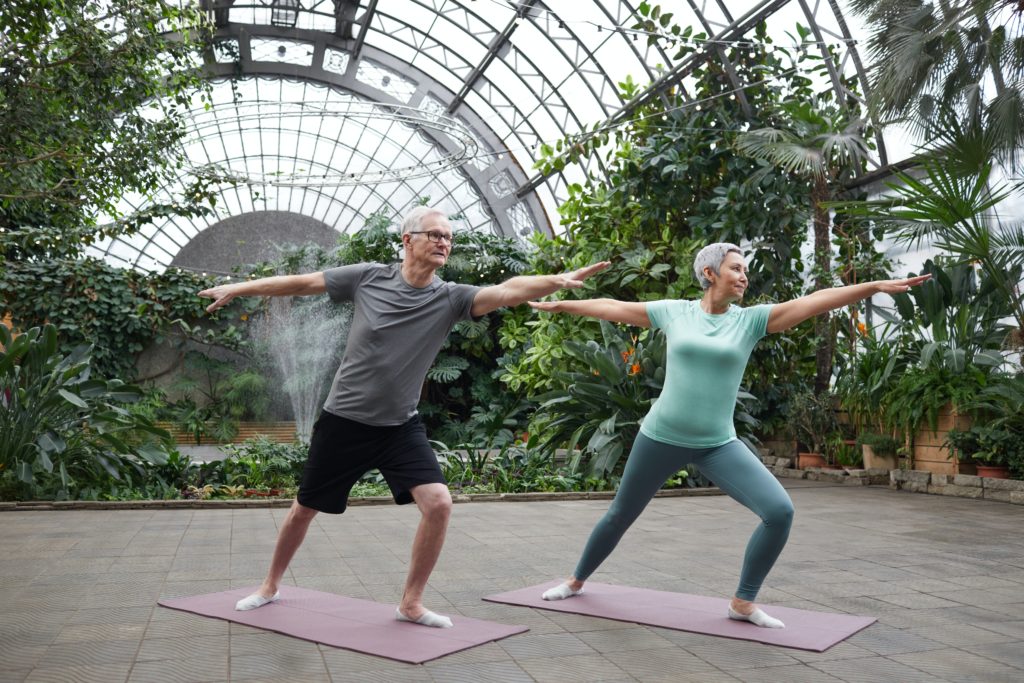As we age it is vitally important that we endeavor to still live our best lives. By improving the aging process, you are being proactive rather than reactive in the story of your life. Aging well doesn’t mean being in denial and trying to look like a 20-year-old.
Everyone grows older, but that doesn’t mean the aging process can’t be improved. Are you aging well? The World Health Organization (WHO) defines actively aging well as the process of increasing and improving opportunities for health, participation, and security to enhance a person’s quality of life. You can improve your aging process by focusing on your physical, mental, and emotional health.
Use some of these tips to help you age well.
7 Ways To Age Well:
- Maintain a Strong Grip:
According to a study in Clinical Interventions in Aging, grip strength is related to multiple health and happiness markers. Improving your grip strength can also improve your:
- Upper Limb Function
- Overall Strength
- Fine Motor Skill
- Cognitive Ability
- Emotional State
Good grip strength allows you to age well and remains active and independent. To strengthen your grip strength, try this exercise:
- Squeeze a squish or tennis ball with your whole hand 5 to 10 times
- Repeat using only your thumb and index finger.
- Repeat using your thumb and each other finger.
It sounds silly, but these functional-type exercises can help you stay strong as you get on in life.
2. Be Mindful of Your Diet:
Eating well has so many benefits for our bodies and our mental health. As we age, what we eat becomes even more important.
Remember to be kind to yourself and practice mindfulness as you eat. Be sure to choose from a diverse selection of organic plants and free-range, grass-fed meats and wild-caught fish. A basic list includes:
- Fruits
- Vegetables
- Whole Grains
- Lean Protein Sources
- High-Quality Fats (e.g. olive oil, coconut oil, and avocados)
- Low Sodium
- Little Added Sugars
Lean protein sources include fish, poultry, eggs, legumes, and nuts and seeds. Be sure to talk with a nutritionist about a plan that’s tailored fit to you and your lifestyle.

3. Stay Active
Studies show that your activity level helps you maintain good muscle mass, strength, and bone density. According to a study in the Journal of Physical Therapy Science, adults age 52 and older tend to have a decreased activity level, leading to poorer health outcomes. The CDC recommends older adults engage in:
- 150 Minutes a Week of Moderate Intensity Aerobic Activity
- 2 Days of Strength Training a Week
- Activity as Tolerated
If you have health problems, talk with your doctor about what activities are safe for you. Be as active as possible and increase your activity level as you grow stronger. Staying active helps you age well by improving your:
- Posture
- Stamina
- Strength
- Balance
- Flexibility
- Independence
4. Optimize Your Brain Power:
According to a study in Scientific Reports, cognitive training improves brain function. The more you use your brain, the better your overall health and quality of life. Studies in the journals Nature and PLoS Medical show that good cognitive function may reduce the risk for dementia. Try exercising your brain with these activities:
- Jigsaw Puzzles
- Sudoku
- Learn a New Language
- Art Classes or Crafts
- Nature Walks
5. Find Creative Ways to Socialize
As you age, the opportunities for social contact may decrease. A report from the National Academies of Sciences, Engineering, and Medicine found that one in four adults age 65 and older are socially isolated. The report also found that social isolation increases the risk for:
- Hearth Disease
- Stroke
- Depression
- Anxiety
- Suicide
- Dementia
- Premature Death
You can improve your aging process by staying socially connected and active. You may find social connections through:
- Joining a Book Club or Other Hobby Group
- Volunteering
- Writing Letters to Family and Friends
6. Prioritize Hydration
As we get older, our sense of thirst decreases, so you may not notice your body needs hydration. At the same time, adequate hydration becomes even more urgent because it’s more difficult for water to enter our cells. It’s not just about drinking 8 glasses of water a day. It becomes more about the quality of the water that you drink. Adding a good electrolyte product to your regimen of drinking quality filtered water will help hydrate the body tremendously.
7. Manage Your Stress and Mental Health:
The effects of stress on the body and the mind have been studied extensively and documented. Getting older in and of itself can be a new stressor to add to the list. There are many proven ways to alleviate stress and boost mental health, including:
- Getting the proper amount of restorative sleep
- Practicing relaxation techniques
- Confiding in a close friend
- Getting support through counseling
- A regular exercise practice
- A nutritious and nourishing diet
- Engaging in a creative project or new hobby
- Walking in nature
Improving your aging process helps you be more independent, increases your cognitive ability, improves your happiness and mental health, and allows you to build meaningful social connections. There are many simple ways to improve your aging process and quality of life. Try a few of the suggestions above to get started.
Be well + prosper,
Elaine xx
